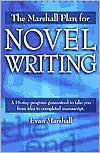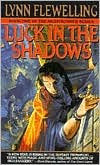Tuesday, September 25, 2007
The Dart Board Method for Plotting: Read It & Weep
For years I had hot flashes -- moments of sudden inspiration -- ideas, images, entire scenes with near-perfect dialogue. I wanted so badly to use these ideas in my fiction. Some of them made such an impression I couldn't help but remember them, and they made it onto the page when I was writing. Sadly, most of the ideas just vanished into thin air, never to be thought of or heard from again. Then I tried capturing them in note form as they occurred to me, for use later. That helped, but I still could not write down every idea, especially when urinating, no matter how many beers I had drunk, and again most of them were lost.
Then I realized it was like throwing darts at a dart board, something I'm terrible at. Sometimes the darts will hit the board, but as often as not they'll hit the wall, the floor, or someone standing a little too close to the action.
For illustrative purposes, the dart board was a story. The darts were the flashes of ideas I would have for the story. I'd get the flashes at any time, any place, whether convenient or not. I couldn't always interrupt other things to stop and write them down, the way it's not always possible to write somebody's phone number on your hand in a drunken stupor no matter how many times he gives it to you. Likewise, when I tried to hold onto the darts, they protested, telling me if you love something, let it go. When I did, they would fly off in some unknown direction, never to be heard from again. Many of them were really good. Some of them were breathtakingly beautiful, stirring me deeply in a truly profound sort of way.
I tried contacting the Dart Makers' Association for help. They told me there was nothing they could do. All around the world, millions upon millions of darts went missing every year, darts nobody ever heard from again. When the DMA stopped returning my calls, I knew I would have to solve this problem on my own.
Then I realized something wonderful, something that had the power to change things forever. No longer would I lose so many darts. I had found a way to get them safely to the dart board, where they would stick and become the stuff legends are made of (and dramas, satires, colorful dialogue, etc.).
Have you ever noticed that dart boards are not just plain, round boards, but they have designs on them? Little lines that radiate outward from the center, concentric circles, panels with different colors. Some boards even have writing on them. You can use these various markings to tell where a dart has struck, to rate it, classify it, assign it points, something I hadn't noticed before since no one ever bothers to keep score when I'm playing -- fractions are usually too small to be considered significant in competition.
I realized that plot ideas are best retained when you have something to attach them to. Not a large, blank, nebulous, ill-defined and poorly-conceived mass of generic story matter, but a story that can be pinned down, draped over a framework, a pattern. I needed a a generic navigation system that could help me determine in which direction a dart, or story idea, went flying.
Once I began to apply the three-act structure to my planning, broken down into twelve steps, things changed dramatically. I conditioned myself for story-telling purposes to conceive of stories and then think of them spatially, temporally, in a pattern that is generic and very much the same for all stories. While the story particulars might vary considerably, the basic sense of a beginning, a middle, and an ending, remained constant. I could pick up a dart and tell at once which part of the story it was destined for. I even learned to discern different kinds of darts! There are darts that incite other darts to fly, darts which fly fast and hard, darts which float along then sneak up on you with a sudden rush (as those standing by the dart board have confided in me). There are even those darts which strike clean through to the very heart (thankfully, with modern medicine, this is not as terrible as it might sound). In short, I learned to tell what sort of dart I was throwing, and where it was supposed to land. Knowing this meant I was now throwing Smart Darts (tm), the kind that always find their targets because, frankly, there's nowhere else for them to go.
What this means for those long drives in cars with songs, and those long showers under refreshing streams of water, is that I can now remember my ideas much more better, and I can recall them later as well. I don't lose nearly as many of them as I used to, and any of True Value (tm) or significance will almost certainly manage to show up eventually precisely where they were supposed to ... not on the dart board, but on the printed page, where they can reside happily forever alongside other darts in a mosaic pattern that, well, it just sort of makes you weep to see it.
My new motto: "A Place For Everything, And Everything In Its Place."
Adrian
Monday, September 24, 2007
Attack of the Giant Ear Worm
Well, now I've done it. Listening to so much music has given me what the Germans call an Ear Worm (Ohrwurm): a song that you just can't get out of your head!
It's okay. It's a great song. I really like it. And it's inspired me with a lot of new notes for my second novel.
The visualization technique has worked wonders, too. I really see the final scenes unfolding, with new imagery, a clearer sense of the ending, and how both novels tie in to the series.
Golly, it seems I'm back to work already. The time away has helped generate some very fertile creative soil.
Wishing everyone well with their WIP's,
Adrian
Saturday, September 22, 2007
Riding In Cars With Songs
As I'm mulling over the last of my decisions before getting back to my writing in earnest, I've been visualizing my novel as if it were a film, wondering what song should play during the opening sequence, how best to capture the theme, the mood, hint at the nature of the story with just a few key images and lines from a song. It's not that my novel will necessarily ever get published, or that if it does, that it will ever be made into a movie -- but I want to SEE this story, to FEEL it, to know it thoroughly, in my mind. Of course, I do hope that it will at least get published, since I feel it is such a worthwhile story; otherwise I wouldn't be writing it.
As you've guessed, apart from the shower, the car is another good place for me to get inspiration for my writing. And of course what do I do in the car when driving? I listen to various CD's, always wondering whether this song or that song might better suit this or that novel idea. It's a terrible habit because I sometimes prefer to listen to the lyrics rather than the conversation of whoever might happen to be riding with me, and frankly I think that's rude, but perhaps it's really rude of other people to think that they should attempt a conversation when riding with someone who is preoccupied with a novel in progress.
Which brings me to a singular thought: the world really should stand still for a while to allow those of us who need time for contemplation that precious introspection which we require in order to move forward with our creative projects. Until that happens, we creative types will bear the unnecessary burden of carrying on with our creativity in the face of a world that does not understand the creative process, the need to stare into space while contemplating realities that others would never know existed if we didn't give form to them and share them.
Alas, it is an all-consuming struggle.
Fortunately, as I ponder while driving, I realize my priorities lie in avoiding collisions, so I do keep my thoughts primarily on the road, especially the pedestrians lining it, and I use my rather significant patience to brake frequently, as often as necessary in our heavy traffic. I do attempt to appear interested in whatever conversation might be offered me, and appreciate the courage of anyone who would venture a dialogue with a preoccupied writerly type. And in the face of it all, I listen as the songs spin round and round on the CD's, smiling a private smile whenever I realize the words that just went by struck gold.
Adrian
Sunday, September 02, 2007
How A Good Shower Can Help You Find An Agent
Okay, there's lots I could do with an opening like that....
But I'll keep it focused on two ideas. The first one is about the shower, the second one about the agent.
Like many writers, I find certain moments tend to work for me as "creative time". One of these moments is when taking a shower. The other day, when taking a shower, my eyes closed, water streaming all over me, I had a powerful set of visions, the kind you can only get in the shower. I saw key scenes from my novel, the pivotal scenes that I've been trying to figure out what to do with, and I saw how these scenes could unfold, and lead from one to the other. It was great to see how I could draw a line, connect the dots, bring motivations and circumstances forward in a meaningful, logical and satisfying way. I felt I had most of the answers I needed and with only a little more thought I'll be ready to finish the novel.
It's important to capitalize on moments like this. When you get those insights, when those powerful visions stream through your mind, you have to focus on them, go with the flow, let the creativity take you where it wants to go. This is your inner voice opening, the well-spring within you telling you where your story needs to go. Such deep insights are either right, or very close to it. A little reflection can help bring them into line with all the other story decisions you've made over time, or help you adjust other things to mesh with the visions. If the insights are right, you'll know it, deep down, and you'll see it because things will fit together without much difficulty. Just be sure to write down some notes afterward, to help you remember as otherwise you might lose some of the fascinating details.
The second idea concerns finding an agent. I just wanted to share that Susan Fleming has recently posted on her blog about this, with a couple of links that are more than worth checking out. Visit her blog to see what it's all about.
These two ideas are related. I think if you take a lot of showers, you'll smell nicer and you'll have so many great ideas, what agent wouldn't want to read your manuscript? Just don't shower with the manuscript -- that approach has not been scientifically proven to have any positive benefits for writers or manuscripts, and may result in ruined pages or damage to electronic devices.
Wishing everyone much progress with their WIP's,
Adrian
Subscribe to:
Posts (Atom)







